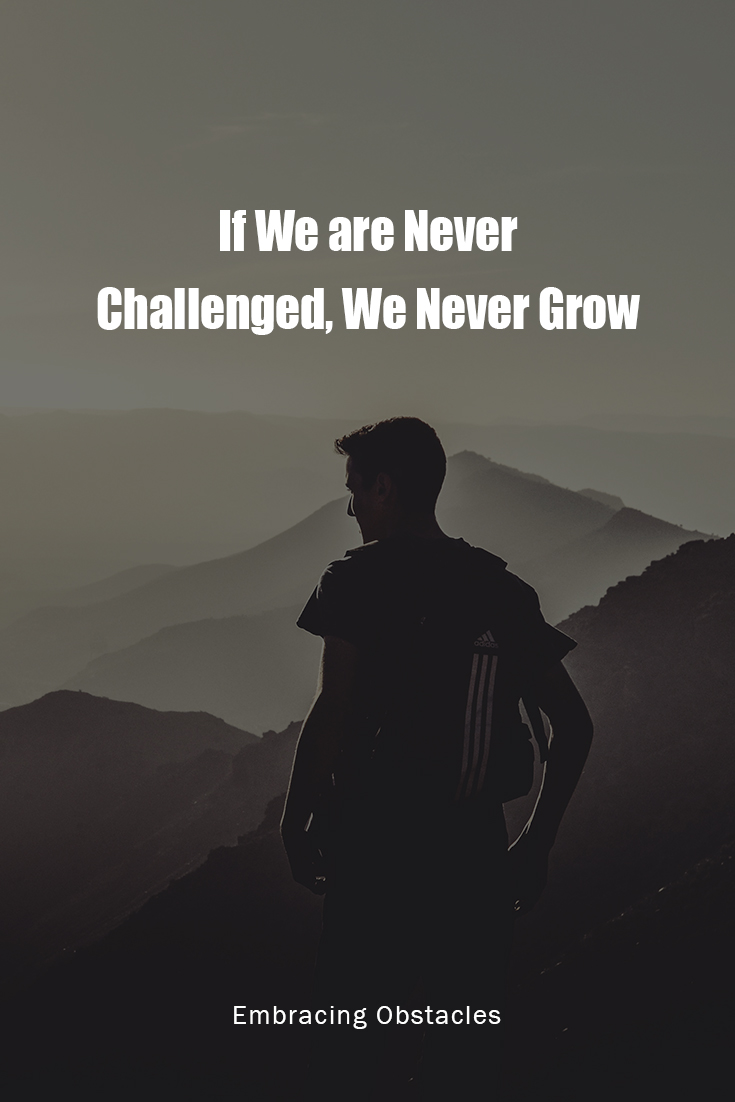Dealing with Change Even Though It Sucks
Dealing with change is so difficult for many to deal with. Most people don’t like change. That makes sense. After all, when you’ve got a goal that you’re trying to accomplish, the last thing you want or need is something standing in your way. Change seems to make us stand still.
If you’re
facing some life changes, it can be hard to remember that it’s normal to
have obstacles crop up from time to time. Everyone has setbacks,
disappointments, and tough times. Going through a rough patch doesn’t have
to spoil your life. The key to thriving dealing with change is how you
respond to the obstacles in your path.
Use these tips to help you in dealing with change.
This
is probably the biggest step and the most necessary one. Accept that life will
always be changing. It’s the one true thing you can depend on above all else.
When you and your friends were hanging out in high school, it all changed when
you graduated. There are and will be plenty more examples throughout your life.
It’s not what happens in life that defines you but how you deal with your situations. You have heard by now the phrase when life gives you lemons turn them into lemonade. This is true today as it was whenever the first person coined the phrase.
Whatever you’re doing when you hit the obstacle, quit it. When you stop, you give yourself time to consider the options without all the emotions flaring up. You guard yourself against acting impulsively in a way you might come to regret later on.
To do this: Start by taking a deep breath or two.
Dealing with Change:
2. Don't get too comfy
Be okay with discomfort while dealing with change. The
biggest changes seem to always happen when we are content or comfortable. While
there may not be scientific evidence to back this up, you should always be
ready for anything that comes your way. When you are comfortable in your
situation is when you let your guard down which makes it more of a shock when
something does change.
The proof that you’re really dealing with change is acknowledging that it doesn’t feel good. It can feel uncomfortable, heavy, even painful. There are lots of life experiences that hurt at the time but end up being for your best and highest good. From marathon training to going to the dentist to public speaking, even facing your debtors, you feel so much better once you’ve faced the worst. Remember it won’t last forever. Don’t shrink from the bad feelings. You can ride them out!
You can and you will conquer your fears! Often, adversity is due to not taking action because you are fearful. When you face your fears, you can move past the adverse situation and get on with your life. Try some daring activities like bungee jumping or skydiving. The point is to create situations that you would not normally find yourself doing. Usually, when you overcome one fear, the process helps you to overcome all of them.
Dealing with Change:
3. Talk about how you're feeling
|
People tend to let things build up inside. They don’t talk about their
situations, or if they do, they don’t talk to the right people. If the changes
are at work, for instance, consider talking to your manager about the impact of
those changes. Managers are human beings, despite what people otherwise
believe. Present your concerns in a professional manner and try not to flare up
your anger, even if it isn’t directed at your manager. Bear in mind that your
manager may be dealing with the changes much the same as you are. People tend to hide their true feelings or deny that they are facing a situation. Try some introspective to learn what is truly going on. Define the emotions you’re feeling, then wait for them to calm. Knowing whether you’re sad, or angry, or frustrated will help you to find that calm place faster, as you would address each emotion differently. For example, ask yourself what you’re angry at if you are indeed angry. If you’re sad, accept the sorrow as being a natural part of the disappointment of meeting something that keeps you from your goal. As challenging as it might be, don’t try to rush through the feeling or push it down. |
The best way to use this setback as fodder for out-of-the-box thinking is to embrace the emotion, no matter what it is. Own it and feel it in your body. Once you feel it’s settled, you’re ready to move on. This process may take an hour, a day, or a week, depending on how major the project and how substantial the complication.
Dealing with Change:
4. Set up mini goals
Be realistic about what you can actually change, what you can actually accomplish in a given amount of time. If you try to enact too many changes at once, it may overwhelm you and the
people who are affected by them. People need time to absorb those changes and
incorporate them into their lives. If you bombard them with a bunch of changes,
they will likely rebel, and you will be left picking up the pieces. Sometimes,
the changes you put into place, can’t be helped. If you do have control
over them, try to introduce them slowly over time.
You could have tried to accomplish something that is not possible or beyond your current level of skills. By adjusting your expectations, you may be able to succeed in your situation. Here’s where a little flexibility is going to go a long way.
Start examining the alternatives. Be as creative as possible and don’t discount anything offhand for being too silly. Sometimes it’s those silly ideas that are going to get you thinking along a different path entirely. Sure, it’s normal to feel some disappointment at this point. Chances are you had your path all planned out. But when you consider all the new possibilities, it’s easy to get excited about trying something new. Use this energy to fuel you toward the next step.
This may sound defeatist, but I've always found it helpful to set the bar low for myself. I set the bar so low that I'm bound to be successful! Frequently our problem with obstacles starts with trying to take on too much at once. In moving forward, re-examine the goal you were trying to accomplish.
How can you break down your goal into smaller steps? By focusing on these more modest goals, you’ll find it easier to move ahead. Also, you won’t be quite so overwhelmed by the big picture.
Dealing with Change:
5. Get the support you need
Some changes will impact people where they need the support of others.
This can happen when death strikes or some long-term illness. It could be
trying to give up a type of addiction, etc. There may be other types of changes
where people need to reach out. Seek out the help of others who are going
through similar circumstances as you are.
You don’t have to face your obstacles alone. It can make all the difference to have people around you who are supportive, who’ll stick by you and cheer you on when you want to give up.
If you have a cheer squad, you’ll find that extra level of energy to help get you through. And you’ll be there for your friends and colleagues when they’re facing their challenges.
Once you’re part of a team or group who have each other’s backs, none of you will have to face life’s ups and downs alone. You’ll fight together and celebrate success together.
Sometimes embracing challenges means allowing others to support you and help you. (I know...this is a tough one for me, too.) Others can help you to turn your situation around. It’s rare that anyone faces something unique. Others have been through what you are going through. Reach out to them. It’s better to get the help you need than to needlessly struggle with your situation. Some people avoid reaching out because they are embarrassed. Just remember, those people once went through it, too. They know what you are dealing with.
Dealing with Change:
6. Embrace the change with gratitude
|
When you start to focus on change being something that is good, opportunities will be more open to you. They have a way of finding you. These opportunities may not have presented themselves had the changes not occurred. Feeling gratitude for the challenges in life might sound counter-intuitive. But think about it. Accepting the challenge, resolving to meet it head-on, and overcoming it makes you a better, stronger person. Think of how good it feels to deal with a problem and solve it. To face fear and overcome it. Without challenges in your life, you would not grow and learn and become a better person. Obstacles are a natural, normal part of living an authentic life. Learn from your failures! If you ask any successful person how they got that way, they will most likely tell you it’s due to overcoming failures. They learned from those failures and tried something different. Each iteration, they learned something new from their failures. They continued until there were no failures. As the saying goes: When you lose, don't lose the lesson! |
I know...I know. I don't want to hear this, either. It's the only helpful option, though. The alternative is to remain stuck, and that sucks even more than trying to learn something from the current not-so-great situation.
Dealing with Change:
7. Believe in yourself and celebrate the small wins
If you’re
having a tough time dealing with change, it can be easy to feel helpless, even that you’re a
victim. But it’s up to you to rise to the challenge and decide that you won’t
be overwhelmed. Choosing to take control and embrace your challenge is the
first step in overcoming it. Look your obstacle square in the face and resolve
to meet it.
Believe in what you are doing! You have heard the classic tale how Thomas Edison continued 10,000 times before getting the light bulb to the way he wanted it. It’s hard to say if that number became exaggerated over the years, but he likely tried several thousand times at least. The point is, he believed in what he was doing. When you try something that is untested, you need to take a leap of faith. Otherwise, it’s too easy to give up on your venture.
If your adverse situation is due to procrastinating, you can probably figure out you need to stop that behavior. If you let something build because it’s uncomfortable to deal with, in most cases, the situation will get worse. Don't wait to try again!
You may be forced into situations or decisions that go against what you believe in. If you find yourself in such a situation, it’s best to go with your gut or trust your instincts. If the change doesn’t feel right and you have no power to counter it, try to remove yourself from the situation if you feel strongly about it.
While you're dealing with change, don't forget to celebrate the small wins!
It might seem odd to be thinking about celebrations when talking about obstacles but consider this: When you celebrate your accomplishments, you embrace the journey you’ve been on, barriers and all. Even if you’ve stalled out completely, you can celebrate the progress you made and the work you put into the project. These are all worth getting excited about, and the emotions here are worth embracing.
Then when the party is over, ask yourself where you want to go from here. Make choosing a new goal part of the celebration. That’s also something to get excited over.
In the end, when you're embracing challenges, you’re likewise embracing a new way of thinking. You’re adjusting your mindset to one of success instead of failure. You’re accepting there are different ways to do things, and that the things standing in your way are more often new opportunities than a true stopping point. You’re looking at life in a way which allows you to go places you never thought possible before.
The key here is in control. Your emotions shouldn’t be what’s holding your back. Of course, it’s okay to feel what you do when you meet with an obstacle. The key is in not staying there when it’s time to move forward again because you will move forward again if you keep trying.
|
Please check out my Free Stuff page for some quick tools to get you feeling better right away. Also, if you take a look in the Self-Help Shop, you'll see all the programs I use myself and that I recommend. Many of these programs offer free samples - you know I love free! While dealing with change, be gentle with yourself and care about yourself. Expect to feel better. It is absolutely possible, but you have to be willing to do something to change your brain's programming. |



